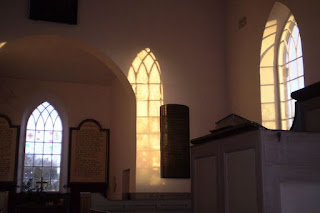'His constant patron, Dr. Nicholson': Restoration, latitude, and Robert Nelson's 'Life of Dr. George Bull'

Today we resume our weekly readings from Robert Nelson's 1713 The Life of Dr. George Bull , one of the particularly significant divines of the 18th Church of England. Prior to Lent, we had left Bull in the immediate aftermath of the Restoration, in a nation reeling from the political and religious divisions of the past few decades, his preaching already indicating the wisdom and moderation of the Arminian Conformity central to the Church of England during the long 18th century. We now move to 1662, when Nelson was presented to a new cure: In the Year 1662, Mr. Bull was presented to the Vicaridge of Suddington St. Peter, by the then Lord Chancellor the Earl of Clarendon, at the Request and Application of his constant Patron, and worthy Diocesan, Dr. Nicholson, who was made Bishop of Gloucester upon the Restoration, and who had all that Merit which was necessary to fill so great a Station in the Church to the best Advantage, if his Steddiness to her Doctrines and Discipline, in ...




